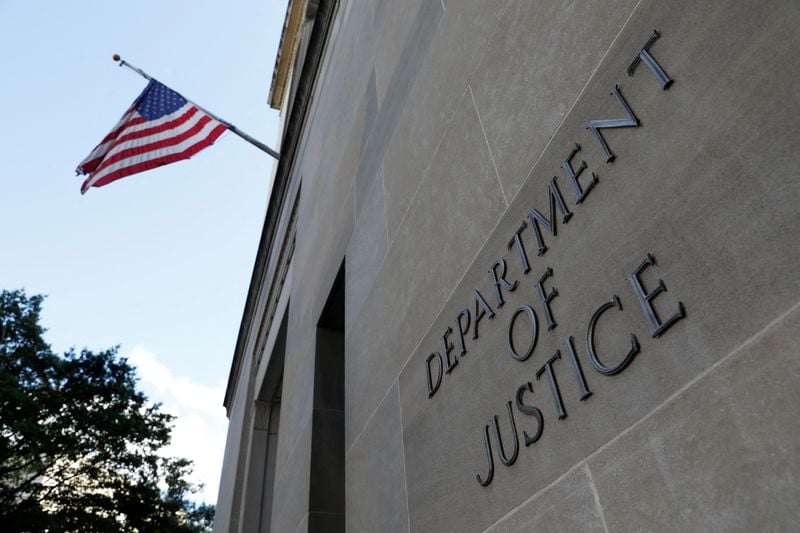Baltimore, Maryland – United States Attorney for the District of Maryland Erek L. Barron and Assistant Special Agent in Charge Orville O. Greene of the Drug Enforcement Administration, Baltimore District Office are teaming up to publicize the Drug Enforcement Administration’s 21st National Prescription Drug Take Back Day being held at various sites across Maryland and the country on Saturday, April 30, 2022.
National Drug Take Back Day is a nationwide event in which citizens can safely and anonymously dispose of unused prescriptions at DEA drop off location sites for free. The nationwide effort aims to provide a safe, convenient, and responsible method of disposing of prescription drugs and educating the general public about the potential for abuse of medications. Maryland has approximately 100 available sites. The public can find a nearby collection site at www.DEATakeBack.com or by calling 800-882-9539.
Maryland U.S. Attorney Erek Barron will be participating in National Prescription Drug Take Back Day with the DEA as well as other federal, state, and local law enforcement officials at 5305 Village Center Dr, Columbia, MD from 10 a.m. to 2 p.m. The event is sponsored by HC DrugFree and the Howard County Police Department.
“Over the course of the last year, the state of Maryland has seen a significant increase in drug overdoses and crimes that exploit the opioid epidemic. For example, fentanyl, a drug that can be consumed safely when prescribed by a physician, can be severely addictive and has plagued countless Maryland families. Thanks to the DEA’s efforts and the abundance of collection sites, individuals can safely dispose of unused medications that could lead to prescription drug abuse” said United States Attorney for the District of Maryland, Erek L. Barron. “I encourage all Marylanders to dispose of unused and unneeded prescription drugs in their homes by participating in DEA’s National Prescription Drug Take Back Day on Saturday or by visiting https://takebackday.dea.gov/ to find a collection site near them”.
DEA and our state and local partners throughout the area will collect tablets, capsules, patches, and other solid forms. DEA will also accept vape pens or other e-cigarette devices from individual consumers, only after the batteries are removed from the devices. If the battery cannot be removed, individual consumers can check with large electronic chain stores who may accept the vape pen or e-cigarette devices for proper disposal. Liquids, including intravenous solutions, syringes and other sharps, and illegal drugs cannot be dropped off. This service is free and anonymous, no questions asked.
Rates of prescription drug abuse in the United States are alarmingly high, as are the number of accidental poisonings and overdoses due to these drugs. Studies show that a majority of abused prescription drugs are obtained from family and friends, including from the home medicine cabinet.
Collection sites will adhere to local COVID-19 guidelines and regulations in order to maintain the safety of all participants and local law enforcement.
Given the ongoing COVID-19 public health emergency, DEA wants to ensure that the public is aware of other ways they can dispose of unwanted prescription drugs without having to leave their homes. Both the U.S. Food and Drug Administration and the Environmental Protection Agency have tips on how to safely dispose of drugs at home. Go to https://www.fda.gov/consumers/consumer-updates/where-and-how-dispose-unused-medicines or https://www.epa.gov/hwgenerators/collecting-and-disposing-unwanted-medicines.
In addition to DEA’s National Prescription Drug Take Back Day, prescription drugs can be disposed of at any of the 11,000 DEA authorized collectors at any time throughout the year, and at many local law enforcement agency sites.
Recent Federal Prosecution of Opioid Cases:
United States v. Rodney Mondell Coby: On April 13, 2022, Rodney Mondell Coby, a/k/a “Cuz,” age 33, of Waldorf, Maryland, was sentenced to 40 years in federal prison for distribution of fentanyl resulting in death, conspiracy to distribute and possess with intent to distribute controlled substances, possession with intent to distribute controlled substances, possession of a firearm in furtherance of a drug trafficking crime and being a felon in possession of firearms and ammunition. According to the evidence presented at trial, Coby distributed kilograms of fentanyl to resale and personal use customers of the course of several years. On at least two occasions, Coby and others distributed fentanyl to two individuals who later died as a result of the consumed fentanyl. During an executed search warrant at Coby’s apartment, law enforcement recovered 5 firearms, 159 rounds of ammunition, 121 individual baggies of fentanyl, and $22,000 in cash amongst other items.
United States v. Dwight Antonio Pitts: On March 1, 2022, Dwight Antonio Pitts, age 47, of Hanover, Maryland, was sentenced to 15 years in federal prison for his participation in a drug distribution conspiracy involving large amounts of fentanyl, cocaine, and marijuana, shipped through the U.S. Mail from California to Maryland. Pitts admitted that during his participation in the conspiracy, it was foreseeable that he and the other conspirators distributed approximately 8.5 kilograms of fentanyl; approximately 150 kilograms of cocaine; and approximately 50 kilograms of marijuana.
United States v. Justina Aburime: On January 11, 2022, Justina Aburime, age 53, of Bowie, Maryland, pleaded guilty to one count of conspiracy to distribute and dispense oxycodone and one count of distribution and dispensing of oxycodone. From February 2017 to February 2020, Aburime conspired with others, including Thomas Charles Johnson, to distribute and dispense oxycodone outside the scope of professional practice and not for a legitimate medical purpose at Personal Touch Medical Spa, LLP (PTMS), a Largo, Maryland pain management clinic. During her employment with PTMS, Aburime also allowed an unauthorized person to write oxycodone prescriptions using her medical credentials. Specifically, Aburime allowed PTMS’s owner—who was not authorized to prescribe controlled substances—to prescribe oxycodone to individuals using pre-signed blank prescriptions bearing Aburime’s name and DEA registration number. Aburime faces a maximum sentence of 20 years in prison followed by up to a lifetime of supervised release for each count.
For more information on opioid abuse and where you can find help, please visit https://www.justice.gov/usao-md/page/file/1390896/download.
# # #
